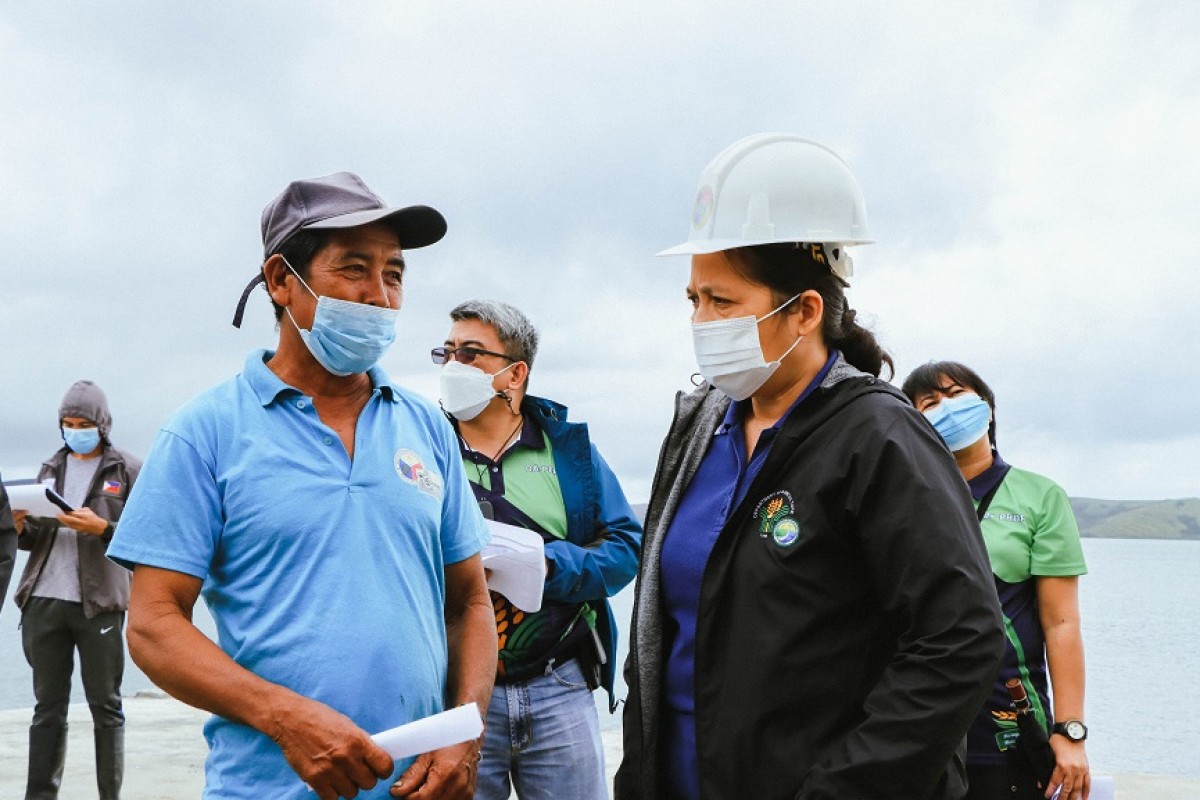QUEZON CITY -- RPCO CARAGA’s infrastructure projects and crisis response earned praise from the World Bank Team in their latest review.
This was during the Mindanao Cluster presentation for the 14th World Bank Implementation Support Mission to the Department of Agriculture Philippine Rural Development Project (14th WBISM) which included an update on the rehabilitation efforts for RPCO CARAGA’s subprojects affected by the devastation of Super Typhoon Odette in December 2021.
In the presentation, PRDP Mindanao reported that thirty-one (31) of the thirty-six (36) infrastructure subprojects in CARAGA incurred no damages from the typhoon while the remaining five (5) only received minor or minimal damages.
On the other hand, of the 19 FMRs implemented in the region, only the Bay-ang Mahaba FMR incurred damages during the typhoon. As of reporting date, the embankment at the road component and aggregates sub-base course had already been fully restored and is now passable to all types of vehicles. In the report from RPCO CARAGA, repair and restoration of the remaining damage will commence as soon as the contractor receives the payment from the Contractors’ All Risk Insurance or CARI which is required for all contractors of the Project before implementing any subproject. In addition, the PLGU of Agusan del Norte has committed P50 million from their 2023 AIP for further work on the FMR.
World Bank Team task leader Eli Weiss commended the resilience of the infrastructure subprojects in CARAGA region that survived the devastation of Typhoon Odette attributing this to PRDP’s adherence to high standards & quality in project implementation.
“The report from CARAGA is pretty impressive seeing despite the damages that the FMR is still there,” Weiss said. “Congrats to all of you, this is the result of years of high standards and quality. This is one of the achievements of the Project to have more and more resilient projects.”
According to PSO Mindanao’s IBUILD head, Engr. Ma Fe Gabunales, PRDP adopts design guidelines from the Department of Public Works and Highways (DPWH) in building roads that can withstand the effects of extreme weather. “In relation to the effects of the ever-changing climatic patterns which cause frequent occurrences of storms and floods in the Philippines, the PRDP Operation Manual included the recent DPWH DO 112 of 2019,” Gabunales said. “Among the provisions mentioned included designs for roads that could accommodate for floods to twice the lifetime of the road project.”
The DPWH DO 112 further contained updated provisions on side slope ratio, pavement thickness, pavement width, pavement type, and the like to ensure more stability of the road system against climatic concerns – all of which are included in the IBUILD Operations Manual.
World Bank Team Co-task Team Leader Teresa Quinoñes also praised the Mindanao Cluster for adhering to global standards for infrastructure saying that it meant PRDP has been successful in getting what it needed to come up with as far as infrastructure subprojects. She went on to commend the effort of RPCO CARAGA in spearheading the “Alalay sa Paghan-ay” program to help those affected by the super typhoon.
“We are very thankful and inspired by the proactivity that the Team has shown with special mention to RPCO 13 who looked beyond PRDP subprojects in providing necessary assistance within the programs and projects of the Department of Agriculture by linking up with the LGUs,” Quinoñes said. “The Alalay sa Paghan-ay is a very important and critical support to the Project.”
Alalay sa Paghan-ay started in early February of 2022 as a collaboration between RPCO CARAGA and PRDP Mindanao to provide technical assistance and recovery mentoring program for local government units and proponent groups affected by Typhoon Odette. Through this, RPCO CARAGA was able to access support and assistance not only from the Department of Agriculture but also from other government agencies such as Bureau of Fisheries and Aquatic Resources (BFAR), Philippine Fiber Industry Development Authority (PhilFIDA), Philippine Coconut Authority (PCA) and Department of Environment and Natural Resources (DENR) who have included the affected PGs in their respective rehabilitation and recovery plans.
DA-PRDP RPCO 13 Deputy Project Director Jodel A. Tabada said this convergence of support is very important for the recovery of the CARAGA region.
“The convergence among various agencies, local government units and the private sector greatly helped in the rehabilitation and restoration of affected subprojects in the region,” Tabada said. “We at RPCO CARAGA and DA CARAGA cannot do this alone but we are able to rise up from this calamity or any other disaster in the future if we continue to unify our efforts.”
Moving forward, Tabada said that PRDP will continue to develop skills to make farmers resilient to climate change and innovate climate resilient interventions as we face future challenges brought about by climate change. (DA)



